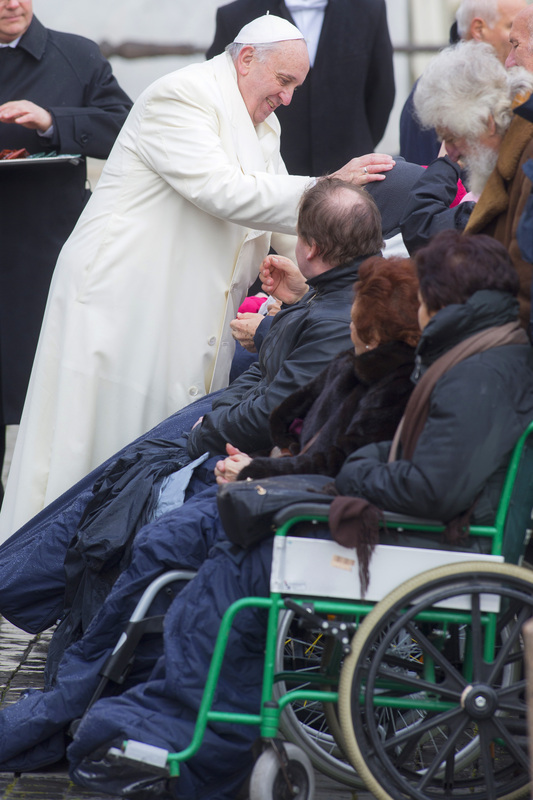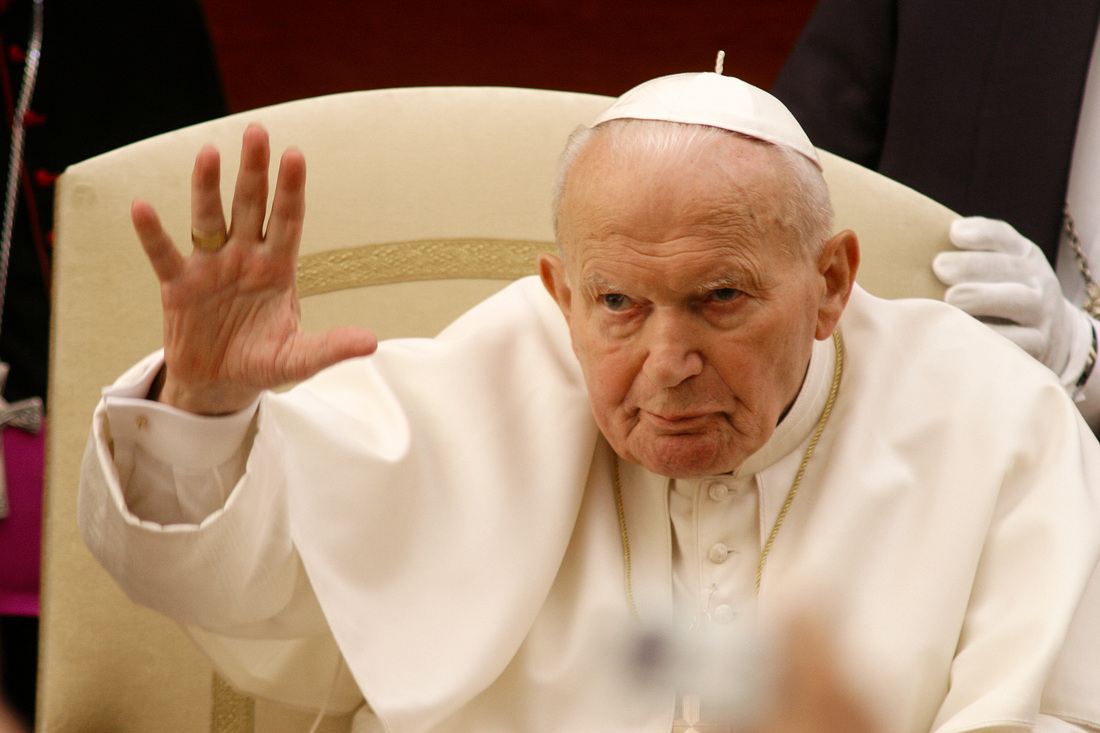|
Quality of Life - Fr. Matt Settle Victorious Suffering - Fr. Matt Settle |
Pope Francis: The Weak and Suffering Are a ‘Richness for the Church’“Dear sisters and brothers who are unwell, don't consider yourselves only as objects of solidarity and charity, but feel integrated fully into the life and the mission of the Church. You have your place, a specific role in the parish and every ecclesial sphere,” he said. “Your presence, silent but more eloquent than many words, your prayer, the daily offering of your suffering in union with that of Jesus crucified for the salvation of the world, patient and even joyous acceptance of your conditions — these are a spiritual resource, a patrimony for every Christian community.”
In fact, the Pope said, “it is a matter of really valuing the presence and the testimony of weak and suffering persons,” not merely as people to be served, “but as active subjects of apostolic activity. The poor, also the poor in health, are a richness for the Church: And you … have received the gift and the responsibility to accept these riches, in order to help them be valued, not only for the Church herself, but for all of society,” he said. He added, “Every sick and fragile person can see in your face the face of Jesus; and you also can recognize in the suffering person the body of Christ. This can be difficult in the modern world, which “is much more inclined to hide physical frailty, to consider it only as a problem which requires resignation and pietism, or at times discards people” (http://www.ncregister.com/daily-news/pope-francis-the-weak-and-suffering-are-a-richness-for-the-church/#ixzz3Vi6QDdFg).
|

